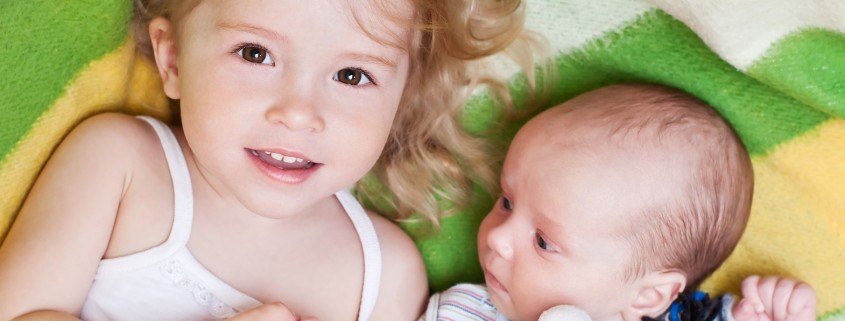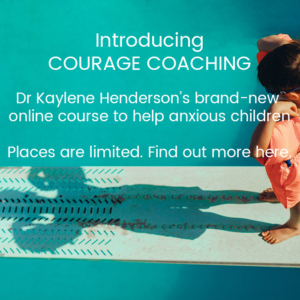Helping Toddlers Bond With New Baby Siblings
Siblings are such an incredible gift for young children yet strangely toddlers don’t always seem to appreciate these gifts as much as we think they should. In fact I’m sure many toddlers sometimes wish they could ‘re-gift’ their new baby siblings. Sometimes it’s difficult to have empathy for how massive this life change is, especially when we’re the ones who have been up all night. And at those times (if we’re not too sleep-deprived for imaginings), it can be useful to picture OUR lives and relationships being suddenly and dramatically changed…
Something a little like this perhaps…
You and your husband are completely in love.
Then, one day, quite unexpectedly, he sits down and excitedly announces that he will soon be bringing home another woman; To live with the two of you permanently; Whether you like it or not.
Sure enough, a few months later, a new woman arrives in your home. She is young and so gorgeous that random strangers in the shopping centre come over to ogle her. They seem not to notice you. When you’re back at home, she wants to spend much of her time physically attached to your husband. It seems that since she arrived, not only are you expected to share your husband, but everything else that used to be just yours too. She’s made no effort to be friendly or to contribute to the household since she arrived and yet, oddly, everyone assumes that you’re thrilled with this new arrangement!
Worst of all, your husband seems to be up all night, every night with his new love and is too tired to spend quality time with you during the day.
Forgive me for asking but at what point did this seem like a good idea??!
Now don’t get me wrong. The arrival of a new baby sibling can be wonderful for a family. It just doesn’t always seem like that at the start. Or at least not for the toddler. A baby’s arrival brings enormous changes for your child and it’s important not to lose sight of that in the sleep-deprived haze of newborn-parenthood.
So here are my tips for helping your toddler adapt to and bond with her new baby sibling. Some of these are drawn from my clinical experience and theoretical knowledge, but most come from my experience as a mother of three young and loving siblings:
BEFORE YOUR NEW BABY IS BORN:
- Encourage bonding with your ‘listening belly’: Just as you will start to bond with your baby even before his/her birth, so too can your toddler. Let your toddler know that her soon-to-arrive sibling can already hear her, even from inside your belly. This provides wonderful opportunities for interaction when you’re chatting, reading or listening to music with your toddler, e.g. “Your big sister and I are just about to read a book now baby. You’ll be able to listen to it from inside my tummy and when you come out, we’ll be able to show you the pictures too”, or, “I wonder if you like this song too – your big sister picked this one for us all to listen to”. You get the idea.
- Read stories about new baby siblings: There are quite a few books which have been written to help prepare toddlers for the birth of new baby siblings. We read “I’m a Big Sister” by Joanna Cole (who has also written a big brother version). I particularly liked this story because it explains that babies ask for what they need by crying. My empathic oldest child was very reassured that babies were simply communicating in this way and were not always sad. Once her baby sibling had arrived, I could then ask for her help to work out why her baby sister was crying – “I wonder if she’s trying to ask for a feed or a sleep, what do you think?”. Assisting in this way can bring a welcome sense of responsibility for your toddler.
- Look at your toddler’s baby photos with them: Again, I made a little book for each of my daughters a few months before their next baby sibling was expected. In it, there were photos of their hospital stays, of being kissed and cuddled and of using all the baby equipment (e.g. baby capsule, sling, playmat, bassinet etc) so that they understood that they had enjoyed these when they were babies and it would soon be our new baby’s turn.
AFTER YOUR NEW BABY IS BORN:
- Your hospital stay: If you, like me, choose to have your babies in hospital, there are things you can do to make this separation from your toddler less distressing. Each morning and night my children and I video-called each other via mobile phone (my phone and my husband’s phone…not my toddler’s by the way), so that we were able to say our good-nights and good-mornings, despite being apart. I’m aware that this won’t be possible for everyone, but worth looking into if you can. (Kisses goodnight can get a little messy on the phone screen-cover). Knowing that I wouldn’t be able to be my usual physically interactive self after the birth, I also packed quiet activities that my young visitors would be easily able to do in my hospital room (puzzles, colouring in etc) and planted little treasure hunts around my room for their visits (which worked perfectly as I was able to stay comfortably still for the hunt while they ran around my room).
- Be prepared for newborn gifts: People are often incredibly generous when you have a baby but toddlers can often feel left out. Either stash the baby’s gifts away and open them after-hours or have a small supply of pre-wrapped gifts that you’re happy to bring out for your toddler if she seems to be struggling with this.
- Encourage your toddler to help: This doesn’t include running a bath or putting the baby to bed (tempting some days, I know) but your toddler can certainly be asked to help in other ways, e.g. “Which do you think would be a better outfit for your baby brother today – this one or that one? Thanks for helping”. And, if you have a particularly helpful toddler at home, she can certainly assist by passing you nappies, wipes, or joining you as you gently massage your baby together.
- Ensure life goes on as usual: Of course, everything isn’t normal (especially not your energy levels), but the birth of a new baby sibling shouldn’t mark the end of all fun activities if possible. If you can still manage to get to your toddler’s favourite playgroup sessions with a new baby in tow, then try your best to do so. Otherwise you risk your toddler making the association between ‘birth of sibling = end of fun stuff’ which isn’t the best for sibling bonding.
- Don’t complain (within earshot of your toddler): This one’s pretty self-explanatory. This is a huge change and your toddler is monitoring everything you say and do to help her inform her own attitude towards this change. If you wake every morning complaining about how your new baby kept you awake all night (even if he did) and so it’s the baby’s fault that you’ve got no energy to jump on the trampoline, then your toddler will soon get a sense of a you versus baby dynamic and inevitably side with you. Instead, if you want your toddler to THINK positively about your baby, you’ll need to consciously SPEAK positively about your baby.
- Spend time all together: It’s great if you and your partner can at times spend 1:1 time with each of your children (known in our house as ‘dividing and conquering’). But it’s also important that you spend quality time with your toddler and baby together. Our favourite activity during this early stage was ‘smiling practice’. I explained to my toddler that babies need to learn everything – they even need to learn how to smile. Then, when our baby was happily awake, my toddler and I would gaze at her and smile. My toddler was proud of her role in teaching her younger sibling the art of smiling and when our baby finally smiled back at her, she was completely delighted.
- Quality toddler time: Just as it’s important to spend time together it’s also important not to lose 1:1 time with your toddler. I would say to our baby as I was putting her to bed (ensuring that my toddler was within earshot) that it had been lovely spending time all together but that while she was asleep, her big sister and I would now be spending some special ‘big kid time’ together and that we would see her when she woke up. A great tip is to enjoy special time with your toddler but to ensure that you save her very favourite activities for when her baby sibling is with you both. The risk of doing your toddler’s favourite activities only when the baby is asleep is that your toddler might soon assume that life would resemble some sort of blissful nirvana full of loving attention and favourite things … if only the baby would sleep forever…
- Managing feeding time: As you’d remember, newborn babies take a long time to feed in the early days to weeks. Often mothers find this to be a difficult time, attempting to engage their toddlers while remaining stationary enough to feed their infants at the same time. A helpful idea is creating a box of ‘special feeding activities’ that are only produced during the baby’s feed time. This can include some new books, little toys or puzzles. Again, it’s about creating that positive association about the baby in the mind of your toddler. If your toddler enjoys books, feeding time is the perfect time to have your child cuddle into your side while your baby feeds on the other, enjoying a book together.
- Talk to your baby about your toddler: Before I’d had my second child, I’d heard mothers describe feeling guilty for gazing at their babies in front of their toddlers. Gazing at babies is incredibly important for bonding but it also plays a critical role in their brain development. A lovely easy way to have this time with your newborn is to gaze at your baby while you chat to him about his big sibling. Your new baby will only take in your eyes, your facial expression and your tone. Your toddler will notice your words. It’s hard to be resentful if what your toddler hears is, “Gosh, I bet you can’t wait to grow up and play hide and seek with your big sister. She’s lots of fun you know – I bet you’ve already worked that out though, haven’t you? You really love her.”
- When you’re out and about: New babies are people magnets when in public. People you know and often people you don’t know will often comment on how lovely your baby is while failing to notice your attentive toddler. Even if your toddler doesn’t appear to notice, she probably will if you reply, “Thank you. She is lovely. And lucky too to have such a wonderful big sister”.
- A word about play: Two things are important to mention here. The first is that your toddler might well want to role play being either the parent or baby in her play. My children have all taken turns carrying around a toy baby in a capsule, worn baby slings fashioned out of scarves and sat beside me and breastfed their dolls. It’s all perfectly normal, for both genders. Aggressive play is also normal. If your toddler is hurting a baby in their play, it’s a good opportunity to acknowledge aloud that she seems to be feeling angry towards the baby. Play provides a wonderful opportunity for children to make senseof the changes in their life and communicate their difficulties with you. As long as it’s clearly understood that real aggression towards your real baby is not okay.
- Understand the feelings behind your toddler’s behaviours: Some toddlers are able to express their feelings in words. Others will communicate their distress through their behaviours. This is a challenging time for your toddler and while they need limits, they also need your understanding.
- Enjoy this stage for what it is: Lastly, enjoy this life stage. There will be days when it will seem like a major achievement that you all survived. But I’m quite convinced that no-one ever lies on their death bed wishing that they’d had more sleep. Rather, it seems more likely that people reflect back on these years and wished that they had cherished them.
*For simplicity, children are referred to using feminine pronouns (‘she’/‘her’) in this article, although the information equally applies to boys.
Dr Kaylene Henderson is passionate about sharing practical, research based advice to help you feel more calm and confident while raising kind, resilient and socially and emotionally healthy children.
And here for the corresponding course series for early childhood professionals, Raising Good Kids: Managing Behaviour and Emotions in Early Childhood Care and Education Settings.




